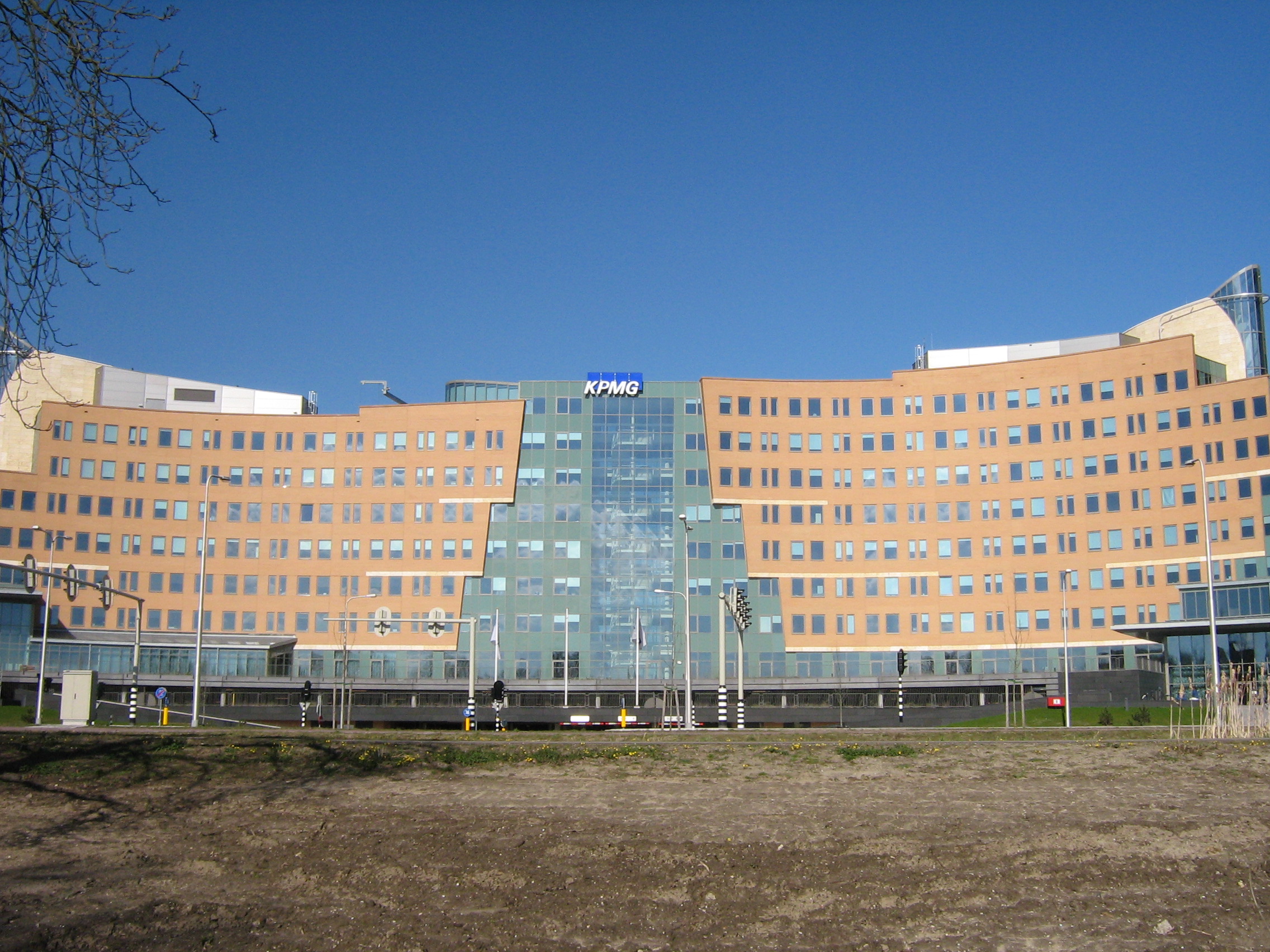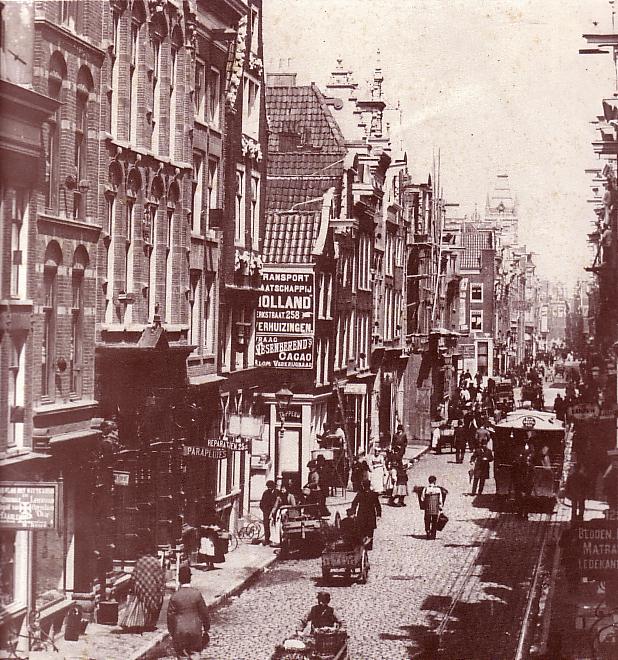|
Piet Klijnveld
Pieter 'Piet' Klijnveld (16 August 1874 – 9 February 1945) was a Dutch accountant who started a practice that, after several mergers, would grow into the international accounting firm KPMG. Life and career Pieter Klijnveld was born on 16 August 1874 in Amsterdam in the Netherlands. After working at the Amsterdam office of the Twentsche Bank (a precursor of ABN AMRO), he opened a small accountancy practice in 1917 in his home on the Viottastraat in Amsterdam. Amsterdam was a bustling trade and investment hub for European and Asian industrialists. Many foreign enterprises, including royalty, governments, and even the Bank of England The Bank of England is the central bank of the United Kingdom and the model on which most modern central banks have been based. Established in 1694 to act as the Kingdom of England, English Government's banker and debt manager, and still one ..., traded extensively in the Netherlands at the time, making it an active market for financiers a ... [...More Info...] [...Related Items...] OR: [Wikipedia] [Google] [Baidu] |
KPMG
KPMG is a multinational professional services network, based in London, United Kingdom. As one of the Big Four accounting firms, along with Ernst & Young (EY), Deloitte, and PwC. KPMG is a network of firms in 145 countries with 275,288 employees, affiliated with KPMG International Limited, a private English company limited by guarantee. The name "KPMG" stands for "Klynveld Peat Marwick Goerdeler". The initialism was chosen when KMG (Klynveld Main Goerdeler) merged with Peat Marwick in 1987. KPMG has three lines of services: financial audit, tax, and advisory. Its tax and advisory services are further divided into various service groups. In the 21st century, various parts of the firm's global network of affiliates have been involved in regulatory actions as well as lawsuits. History Early years and mergers In 1816, Robert Fletcher started working as an accountant and in 1839 the firm he worked for changed its name to Robert Fletcher & Co. William Barclay Peat join ... [...More Info...] [...Related Items...] OR: [Wikipedia] [Google] [Baidu] |
Amsterdam
Amsterdam ( , ; ; ) is the capital of the Netherlands, capital and Municipalities of the Netherlands, largest city of the Kingdom of the Netherlands. It has a population of 933,680 in June 2024 within the city proper, 1,457,018 in the City Region of Amsterdam, urban area and 2,480,394 in the Amsterdam metropolitan area, metropolitan area. Located in the Provinces of the Netherlands, Dutch province of North Holland, Amsterdam is colloquially referred to as the "Venice of the North", for its canals of Amsterdam, large number of canals, now a World Heritage Site, UNESCO World Heritage Site. Amsterdam was founded at the mouth of the Amstel River, which was dammed to control flooding. Originally a small fishing village in the 12th century, Amsterdam became a major world port during the Dutch Golden Age of the 17th century, when the Netherlands was an economic powerhouse. Amsterdam was the leading centre for finance and trade, as well as a hub of secular art production. In the 19th ... [...More Info...] [...Related Items...] OR: [Wikipedia] [Google] [Baidu] |
Bank Of England
The Bank of England is the central bank of the United Kingdom and the model on which most modern central banks have been based. Established in 1694 to act as the Kingdom of England, English Government's banker and debt manager, and still one of the bankers for the government of the United Kingdom, it is the world's second oldest central bank. The bank was privately owned by stockholders from its foundation in 1694 until it was nationalised in 1946 by the Attlee ministry. In 1998 it became an independent public organisation, wholly owned by the Treasury Solicitor on behalf of the government, with a mandate to support the economic policies of the government of the day, but independence in maintaining price stability. In the 21st century the bank took on increased responsibility for maintaining and monitoring financial stability in the UK, and it increasingly functions as a statutory Financial regulation, regulator. The bank's headquarters have been in London's main financial di ... [...More Info...] [...Related Items...] OR: [Wikipedia] [Google] [Baidu] |
1874 Births
Events January * January 1 – New York City annexes The Bronx. * January 2 – Ignacio María González becomes head of state of the Dominican Republic for the first time. * January 3 – Third Carlist War: Battle of Caspe – Campaigning on the Ebro in Aragon for the Spanish Republican Government, Colonel Eulogio Despujol surprises a Carlist force under Manuel Marco de Bello at Caspe, northeast of Alcañiz. In a brilliant action the Carlists are routed, losing 200 prisoners and 80 horses, while Despujol is promoted to Brigadier and becomes Conde de Caspe. * January 20 – The Pangkor Treaty (also known as the Pangkor Engagement), by which the British extend their control over first the Sultanate of Perak, and later the other independent Malay States, is signed. * January 23 – Prince Alfred, Duke of Edinburgh, second son of Queen Victoria, marries Grand Duchess Maria Alexandrovna of Russia, only daughter of Tsar Alexander III of Russia, i ... [...More Info...] [...Related Items...] OR: [Wikipedia] [Google] [Baidu] |
1945 Deaths
1945 marked the end of World War II, the fall of Nazi Germany, and the Empire of Japan. It is also the year Nazi concentration camps, concentration camps were liberated and the only year in which atomic weapons Atomic bombings of Hiroshima and Nagasaki, have been used in combat. Events World War II will be abbreviated as “WWII” January * January 1 – WWII: ** Nazi Germany, Germany begins Operation Bodenplatte, an attempt by the ''Luftwaffe'' to cripple Allies of World War II, Allied air forces in the Low Countries. ** Chenogne massacre: German prisoners are allegedly killed by American forces near the village of Chenogne, Belgium. * January 6 – WWII: A German offensive recaptures Esztergom, Kingdom of Hungary (1920–1946), Hungary from the Soviets. * January 9 – WWII: American and Australian troops land at Lingayen Gulf on western coast of the largest Philippine island of Luzon, occupied by Japan since 1942. * January 12 – WWII: The Soviet Union begins the Vis ... [...More Info...] [...Related Items...] OR: [Wikipedia] [Google] [Baidu] |
Dutch Accountants
Dutch or Nederlands commonly refers to: * Something of, from, or related to the Netherlands ** Dutch people as an ethnic group () ** Dutch nationality law, history and regulations of Dutch citizenship () ** Dutch language () * In specific terms, it reflects the Kingdom of the Netherlands ** Dutch Caribbean ** Netherlands Antilles Dutch may also refer to: Places * Dutch, West Virginia, a community in the United States * Pennsylvania Dutch Country People Ethnic groups * Pennsylvania Dutch, a group of early German immigrants to Pennsylvania Specific people * Dutch (nickname), a list of people * Johnny Dutch (born 1989), American hurdler and field athlete * Dutch Schultz (1902–1935), American mobster born Arthur Simon Flegenheimer * Dutch Mantel, ring name of American retired professional wrestler Wayne Maurice Keown (born 1949) * Dutch Savage, ring name of professional wrestler and promoter Frank Stewart (1935–2013) Arts, entertainment, and media Fictional characters * Du ... [...More Info...] [...Related Items...] OR: [Wikipedia] [Google] [Baidu] |
Businesspeople From Amsterdam
A businessperson, also referred to as a businessman or businesswoman, is an individual who has founded, owns, or holds shares in (including as an angel investor) a private-sector company. A businessperson undertakes activities (commercial or industrial) to generate cash flow, sales, and revenue by using a combination of human, financial, intellectual, and physical capital to fuel economic development and growth. History Medieval period: Rise of the merchant class Merchants emerged as a social class in medieval Italy. Between 1300 and 1500, modern accounting, the bill of exchange, and limited liability were invented, and thus, the world saw "the first true bankers", who were certainly businesspeople. Around the same time, Europe saw the " emergence of rich merchants." This "rise of the merchant class" came as Europe "needed a middleman" for the first time, and these "burghers" or "bourgeois" were the people who played this role. Renaissance to Enlightenment: Rise of ... [...More Info...] [...Related Items...] OR: [Wikipedia] [Google] [Baidu] |





